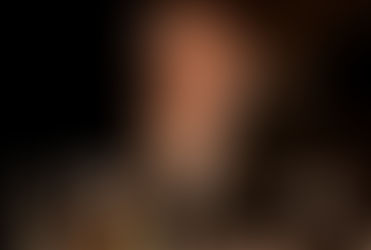An Lár
- Chris O'Rourke
- Dec 2, 2022
- 3 min read
Updated: Dec 4, 2022

Saorla Wright and Evanne Kilgallon in An Lár. Image b Sthiti Padhi
****
Less a hybrid so much as a conspiracy of opposites, Evanne Killgallon’s debut An Lár, a musical play with pantomime overtones, is steeped in issues. Looking aimed at children, it trades in adult themes. Its wedged in, unsatisfying ending taking on so much contrived water it drowns its own denouement. Kathyann Murphy’s cramped, cobbled set feeling less like a boat so much as an untidy storeroom. With costumes, channelling the wildness of a renegade and the ice cream tones of a soccer mom, differentiating without blowing you away, an ill fitting corset not helping. As for occasional outbursts of some modest songs by David Kennan, all modestly sung, the West End is still a way away from calling. Essentially, it’s something of a mess. Made all the more enjoyable and entertaining because of it. A smart, feminist tale of the dead, An Lár explores the modern via the mythical without theatrical airs and graces, being a back to basics production that goes its own way. Blending a hearthy dose of Irish language and folklore with more immediate concerns.
.
Narratively, it’s an archetypal journey. Like some female Charon, Dorchas, all steampunk and Adam Ant, ferries the dead to the Island of No Reprieve. The Otherworld, a kind of all work, no play, bureaucratic nightmare determines the deceased’s fate based on the current laws of the land they lived in. Dorchas, having drawn a short straw centuries ago for a crime she’s not prepared to talk about, has a chance to appeal her sentence as endless ferryman. The arrival of the recently deceased, hyper judgmental Solas, looking to return to the land of contemporary living, might just help Dorchas’s cause. Journeying past púcas, demonic possessions, and even a gay mermaid or two, each woman finds themselves reluctantly transformed by the other. All the while wondering what will the fates decide?

Evanne Kilgallon and Saorla Wright in An Lár. Image b Sthiti Padhi
Many debut writers who follow traditional creative writing routes frequently write similar stories in similar ways. Minus a decent dramaturg (which is better than having a poor one, of which there are many) Kilgallon bravely goes her own way, not labouring over how do I do it? The result might contain errors, but its guts and ambition are wholly refreshing, An Lár (The Centre) proving far bigger than the sum of its creaky parts, with moments of fine writing. If music proves competent without being compelling, Kilgallon’s bi-lingual approach is a masterstroke. You don’t need to know Irish to wallow in its mythic and lyrical richness, though a glossary is provided if you feel a need to look something up. Nor do you need a workable knowledge of comparative mythology. Kilgallon’s tale does all the hard work for you. Under Conor Hanratty’s deft direction, Kilgallon’s Dorchas and Saoral Wright’s Solas show palpable chemistry. Hanratty’s physical scenes, crafted with clever assurance, becoming visual highlights, of which a few more would have been welcome. Yet, ultimately, it’s all Kilgallon, whose pre-show routine provides a lesson in centring into the moment. Focused, forcing the body into a state of ease, her commitment reminds you why she’s a star on the rise.
Glass Mask Theatre might not be the ideal venue, An Lár not the perfect play, but both prove immeasurably rich and, in many respects, mirror each other. Each is trying to find a theatrical fit, but neither sets sail on a wing and a prayer. There’s a youthful, honest, innocent exuberance at play married to a wealth of knowledge and experience. A living “what if” and “let’s chance it” that infuses everything with the freshness of new possibilities. Both stutter. Stammer. Are less than optimum on occasion. But both are ridiculously brave, persisting in what they believe in, and are irresistibly infectious. Despite what some might see as going the wrong way about doing things. Yet sometimes the wrong way is the right way, An Lár confirming Kilgallon as a serious talent in the making.
An Lár by Evanne Kilgallon, runs at Glass Mask Theatre until December 17.
For more information visit Glass Mask Theatre





















